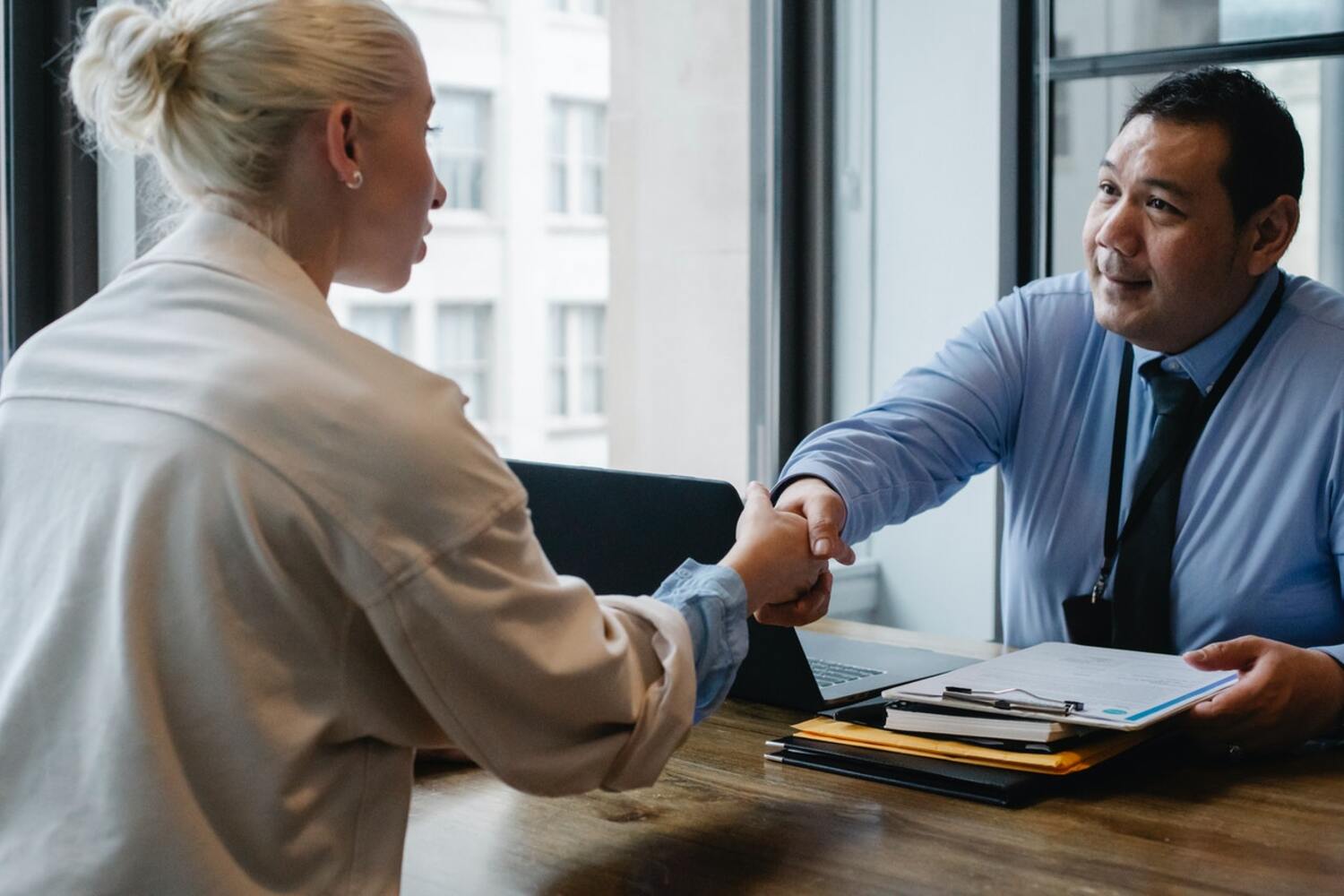What is a Guarantor + When You Need Them

You’ll often hear the term guarantor when someone is applying for an apartment lease. A bank can also assign a guarantor when forming a mortgage loan.
I have all my rental property mortgages under a limited liability company (LLC). My lender allows this arrangement as long as I sign as the guarantor on the mortgage.
What is a guarantor?
A guarantor is legally responsible for making a payment if the primary one assigned is unable to. In other words, a guarantor guarantees that an individual or an organization will get paid.
Lease Guarantor
An individual can be a landlord renting out one of their units or rental properties. The landlord may require a guarantor if they have concerns.
For example, according to the rental application, the applicant has a chance of not paying rent, due to having an eviction on their rental history or the applicant is a first-time renter. Landlords want to make sure they receive their monthly rent.
The term guarantor is often used interchangeably with co-signer. However, the difference is that a co-signer will also be living in one of the apartment complex units and has to abide by the rules in the apartment lease.
On the other hand, a guarantor can be a family member, such as a parent, that will not necessarily live with the applicant and take on financial responsibility.
Mortgage Guarantor
Organizations, such as lenders, can also require a guarantor, especially for real estate investment properties. Some investors put their LLC as the borrower on the mortgage to separate their business from their other assets.
In this case, the borrower defaults because the LLC is just a document. Thus, the guarantor has the financial obligations to make the mortgage payments.
When Do You Need a Guarantor?
When you’re doing an apartment search and find a potential new apartment, it’s not enough for you to follow the rules in the lease agreement. A lender wants to make sure you can pay the monthly rental income.
Below are some reasons why a landlord might also need someone to sign a lease as an apartment guarantor:
Low Income or Unstable Employment History
If you alone are unable to pay rent, it doesn’t make sense for a landlord to approve your application. You’ll need a roommate to co-sign with you to make up the difference. Otherwise, you’ll need a guarantor to make sure rent gets paid.
Also, landlords want to see a stable employment history. If you’re moving from one job to another within a short period, it concerns a landlord you can’t hold a position.
Bad Credit
After you submit your rental application, the landlord or property manager will look up your credit report. According to the Consumer Financial Protection Bureau, they define a credit report as:
A credit report is a statement that has information about your credit activity and current credit situation, such as loan paying history and the status of your credit accounts.
For example, an outstanding balance that is a large percentage of your credit limit can negatively impact your credit score. Also, having a poor credit history can cause you to have a bad credit score.
Ideally, an applicant will have a good credit score, such as a 700+ credit score! Realistically, landlords understand that is not always the case.
For instance, I accept tenants that have a credit score in the 600-700 range. They would prefer to purchase their own house, but a lender won’t approve them for a loan due to their credit score. Even with mortgage insurance, lenders are still hesitant.
Thus, tenants use apartment living while they work on improving their credit score!
If your credit score is low or you have a bankruptcy on your credit report, the landlord will suggest you find a guarantor.
Lack of Credit
If you’re a young adult, you may not have any credit history. Landlords use your credit rating to estimate if you’re fiscally responsible.
I opened up my first credit card while I was in college. I needed a way to start building up my credit and only used my card for gas.
Without any data to go off of, landlords will request you ask someone to be your guarantor in the meantime.
Prior Eviction
Another reason a landlord may require a guarantor is if you have any evictions in your past. Landlords do allow holdover tenants to stay beyond their lease agreement. However, if you violate any of the lease agreement rules, the landlord has the right to evict you.
The eviction process can take months, and some tenant-friendly sites allow the process to take up to six months! That’s potentially six months of lost rental income.
I’m hesitant to accept any tenant with a prior eviction. Having a guarantor is a must-have in this kind of situation.

How Do You Find a Guarantor?
A guarantor needs to be someone who does not lack any of the categories that required you to need them. For example, it would be useless to ask someone who has a poor credit score or a poor rental history. They, too, will undergo similar background checks like you.
Parents
Anyone can be a potential guarantor. Parents are usually the first choice. How can they say no to their say “No,” right?
All jokes aside; They are usually the ones who sign as a guarantor, especially if their child moves on their own for the first. So, instead of asking their parents in the form of desperation, the arrangement was already made in advance.
Friends and Family
The next person that can be a potential guarantor is a family member or a close friend. However, asking one of them to take on financial obligations for you is different compared to asking your parents.
MIxing friends and family and money can be difficult. For that reason, I currently avoid asking them to provide private money to fund any of my real estate deals.
Therefore, ask someone you have a strong relationship with, like your parents. Prove to them that having them sign is only a formality for the landlord. Always assume that there isn’t a guarantor, but rather that you accept full responsibility for paying!
A Guarantor Service
If none of your friends and family are unwilling to sign or can’t get approved as a guarantor, your other option is to hire a guarantor service.
Their service fees are usually at least 4% of the annual rent. For example, monthly rent is $1,000, which is $12,000 for the entire. A 5% service fee would be $600 ($12,000 x 0.05).
These fees can start to add up over time and go as high as 10%. I always try to encourage people to make decisions to avoid debt wherever possible!
If you feel uncomfortable hiring a guarantor service, you might be better off finding a roommate to co-sign with you.
Guarantor Alternatives
An alternative to having a guarantor sign for you is to work with the landlord or property manager to see your options. You could offer a “higher” security deposit to reduce your risk to the landlord.
However, security deposit restrictions vary from location to location.
For example, for the New York City Tenant Laws, the security deposit equals one month’s rent. On the other hand, for Los Angeles Tenant Laws, the security deposit can be two to three months rent depending if the apartment was furnished or not.
Thus, landlords would accept this “higher” security deposit through your move-in fees. This suggestion is a way for you to “put your money where your mouth is!“
Conclusion
Although a guarantor’s purpose is to take on financial responsibility if you default on your rent, that doesn’t necessarily mean you will. A guarantor is there to sign and mitigate risk for the landlord.
They are similar to mortgage insurance when it comes to renting. Where mortgage insurance protects the lender, a guarantor financially protects the landlord.
Don’t make the wrong assumption that it’s “free time” to take advantage of your guarantor’s trust! Instead, maintain their trust and confidence in you by not missing any payment.
Work on areas that required you to get a guarantor. For example, if the reason was due to a low credit score, improve your credit score by paying down debt.
Once you have reached your goals, reach out to the landlord or property manager, and see if you can update your lease agreement to remove the guarantor. The landlord may prefer to keep the guarantor. However, you should strive not to tie yourself financially to anyone.






